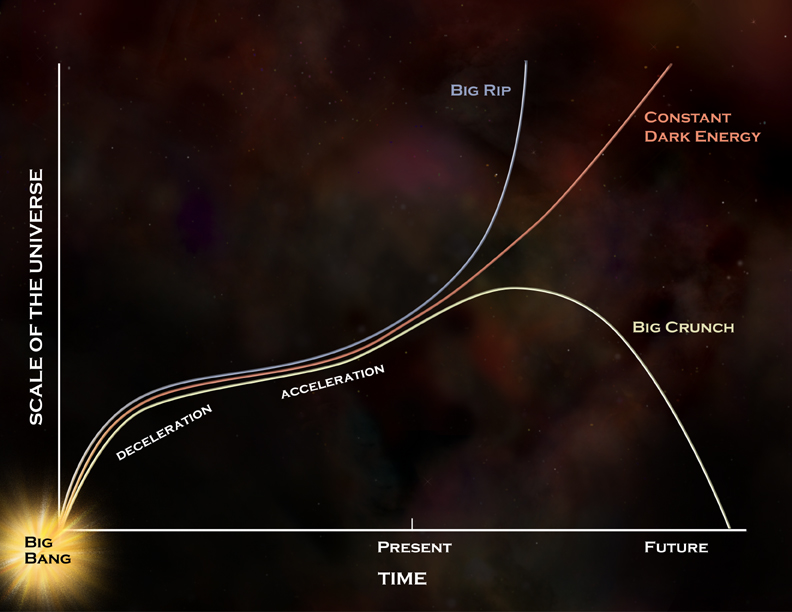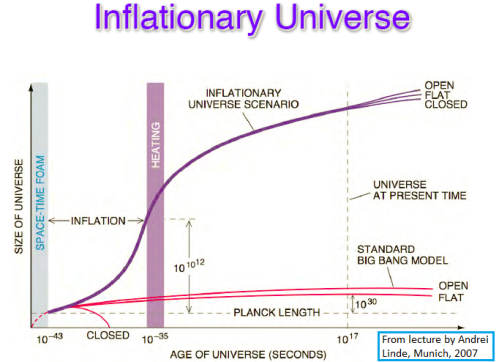Prof. Feser has
responded at length to some comments I made on
one of his posts. As usual, I thank him for his time and attention to my comments.
In those comments, I proposed the example of lightning striking a tree and starting a forest fire. I claimed that the lightning is still an explanation for the fire, even if the lightning itself was a brute fact (i.e. a fact having no explanation).
I realized (eventually) that my example was not the sort of explanation Feser had in mind in his original post. My example was a horizontal causal chain, in which one event causes another, which causes another, and so on, while Feser's original claim was about vertical explanatory chains: one level of explanation is in turn given a more detailed description by a lower-level explanation, which is in turn given a still-lower-level explanation. (The picture I have in mind is, for example, of a broken window that is explained at one level by the rock that hit it, but at a lower level by the fracturing properties of glass and the stresses imposed by the rock, and those properties are in turn explained by the properties of the molecules of which the glass and the rock are made, and so on.) So my example wasn't really relevant to Feser's point.
In his new post, though, Feser clearly
does intend his point
to apply to horizontal causal chains, so perhaps the forest fire example
is relevant after all. Let me add a few more remarks.
For some reason, I'm more sympathetic to the idea that the brutishness of facts propagates vertically. I'm not sure why my intuition differentiates between the horizontal and vertical explanatory chains. The goal of physics is to
describe the way the universe is in as simple and efficient a manner as possible. We physicists suppose that everything physical can be explained at
bottom by the Standard Model of elementary particles, but we are content
to take that theory as a brute fact. (Well, not really "content": we
are always striving for a deeper explanation which will explain the
structure and parameters of the Standard Model. But if we found such a
theory, we would take
that as a brute fact.) So in some sense the answer to any physical question is, "That's just the way the universe
is." But that doesn't mean such explanations aren't useful.
Any explanation of a fact A will necessarily be in terms of
other facts B, C, and D. (Unless A is self-explanatory, whatever that might mean.) B, C, and D, in turn, are either self-explanatory, or brute facts, or they are explained in terms of some further facts E, F, and G. So the whole thing can only bottom out in facts that are either self-explanatory or brute. (It seems to me that this much is true of both vertical and horizontal chains.)
If I read the professor's remarks correctly, he is saying that something can only be a
real explanation if it bottoms out in only self-explanatory facts. (And that this is true of both vertical and horizontal explanatory chains.)
My response is that, if this is true, then there are hardly any examples of real explanations. In fact, maybe there has never been a real explanation in the history of humanity. For (nearly?) all actual explanations leave something else unexplained.
For instance:
- I can explain why that pot of water is boiling by noting that it has been on a hot burner for 15 minutes.
- I can explain why the window broke by noting the rock that hit it.
- I can explain why I slipped and fell by noting the ice on the sidewalk.
People do not normally require a deeper explanation in order to consider these real explanations. I do not need to understand the molecular structure of water and its relation to the boiling point in order to consider the hot stove to be the explanation for the boiling pot. I don't need to know about the breaking stress of glass to consider that the rock explains the broken window. I don't need to understand how ice lowers the coefficient of friction to think the ice explains why I slipped.
What I'm saying is, any
actual example of an explanation
always leaves some loose ends. The regularities themselves are enough for us to claim we have an explanation: heat boils water, rock breaks window, ice makes sidewalks slippery.
Now, what Feser seems to be saying is that, though we might not know what the explanation is for the explaining facts B, C, and D, we must at least believe that
there is an explanation for those facts. Otherwise we don't really have an explanation.
To this I can only respond as
Keith Parsons did: I don't see why I should think this. If all actual examples of explanations leave something else unexplained, why should I deny that these are true explanations? It makes more sense to me to provide an account of explanation that reflects how we actually use explanations than to provide an account which declares by fiat that no real-world examples of explanation are
true explanations.
Feser challenged me to provide an alternative account of explanation. I have done so before in previous discussions, and have not to my recollection had a response, but I am happy to repeat it here.
Consider the
D-N model of scientific explanation. According to this model, an explanation of an event A consists of two things:
- A list of natural laws L1, L2, L3....
- A list of conditions C1, C2, C3.... that guarantee the laws apply in the case A.
So we can provide a D-N explanation of the forest fire as follows:
- L1: Lightning causes fires.
- C1: There was a lightning strike.
Under the D-N model, the lightning strike
is an explanation of the forest fire, even if we have no explanation of the lightning itself (i.e, it was a brute fact).
Let's return to the boiling pot. I can, in principle, carry my explanatory chain vertically downward, explaining the molecular properties of water in terms of the quantum mechanical properties of the atoms, and the properties of the atoms in terms of the Standard Model. There I bottom out in brute facts, from my physicist's point of view.
So here's my counter-challenge for Professor Feser: give a
real explanation - in his own sense - of why the water is boiling: an explanation that bottoms out only in self-explaining facts or necessary truths.
Finally let me note that scientific explanations of the kind I've been talking about have a stunning record of success. Engines, TVs, computers, cell phones - all of modern technology stems from our ability to explain things in terms of unifying regularities. In contrast, Aristotelian explanation has been around for more than 2000 years: what practical successes can it claim?






